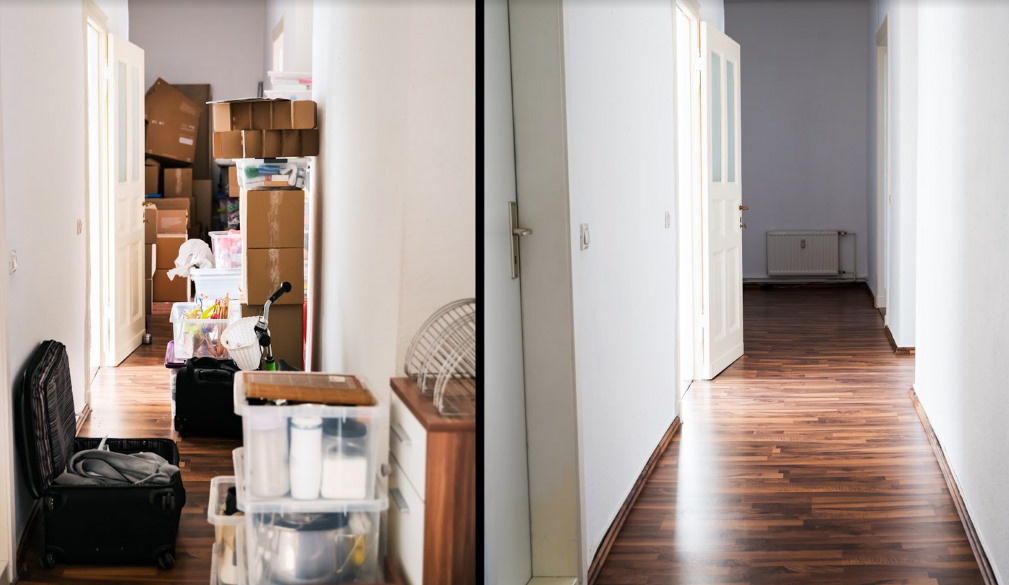Minimalist Living 101 What To Get Rid Of And What To Keep
- Written by NewsServices.com

A minimalist life isn't about cramming everything you own into a tiny container. It's about removing clutter and modifying your thinking to thrive in a more purposeful and peaceful existence.
You're probably aware of how frustrating and upsetting clutter can be and how difficult it is to maintain a tidy house. You feel uncomfortable and uneasy when overwhelmed by your stuff.
Even worse, you develop the belief that you ought to live in those conditions, but you don't! You should live in a house that's both cosy and aesthetically pleasing. You deserve a space to unwind and invite the people you care about.
Getting Rid Of Clutter
Freeing yourself from your possessions through www.dirtcheaprubbishremoval.com.au and others can be done, but it isn't as easy as it sounds because there's also an emotional attachment. It’d take honesty and a little tough love to figure out what clutter is and what isn’t.
Remember, you're not the only one struggling in getting rid of their stuff. However, learning to recognize and eliminate the unnecessary is similar to acquiring any other expertise—the further you learn, the greater you'll become.
Here are some considerations to ponder when determining what to keep and what to dispose of:
1. Remove Expired Items
Expiration isn't only for food items. It's also applicable for documentation and papers. If you have old billing statements, notices, letters, and others from a few years ago, they're only taking up room. Shred and throw them away.
The expiry date may also signify if an object is no longer usable. For instance, you could be clinging on a garment from years earlier for nostalgic reasons despite the fact you won’t use it anymore. Instead, snap a picture of it, frame it, or make it into an artwork.
2. Clean Out Duplicates
Make a list of all the things you have that are duplicates. It's okay to part with a few utensils and food containers if you don't have enough storage for them. Duplicates of things waste valuable space in your house, particularly if they're kept in high-traffic areas like the kitchen.
Edible things are the only duplication you should retain. If you desire two or more of the same things, make a wise decision about it. And to save valuable space, take them away from the frequently accessed storage space.
3. Scrap Broken Things
Wanting to fix things is only beneficial if you take action on it. Otherwise, clinging to damaged objects is useless. The same is true for uncompleted projects. If it's helpful or essential in your life, you'd already have completed it.
Most likely, it just accumulates space in your home, so dispose of it or designate a particular area for items that need to be repaired. Periodically, go through the things in that area. If you haven't completed anything after three months, discard it.
4. Keep What You Use Regularly
Are you using the object regularly or are you able to get by without it yet you refuse to discard it? Things you need regularly are the kind of stuff you'd miss if you misplace or lose them. If you use something frequently, then you should keep it.
5. Release The Guilt
There are some possessions you preserve just because you feel bad about disposing of them. If you've got a present you're unable to use, regifting or recycling the gift is often acceptable. Take the present gratefully and write a message of appreciation, but you're not obligated to retain or utilize it.
If it doesn't seem appropriate to give it away, for example, if it's given by a close relative who may discover it's missing, keep it and showcase it when the opportunity presents itself.
6. Save What You Love
Your favourite things contribute to the delight of life. For instance, you may like gazing at specific photographs or experiencing nostalgia over a certain piece of furniture. The goal is to avoid converting cherished possessions into needless clutter.
When you're downsizing, pick some significant and memorable photographs to preserve and display. Minimalism isn't about discarding something you like; it's about removing goods you don't use or will no longer require in the future.
The Secret To Minimalist Living
The minimalist lifestyle is primarily concerned with the pursuit of satisfaction, which starts with an appreciation for what you already have. When you're thankful for the things you possess, the urge to acquire further possessions eventually fades away. And that's what will keep you clutter-free.
Consider the ideas mentioned here as you start living like a minimalist.


























